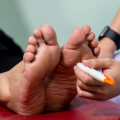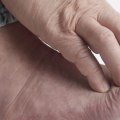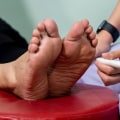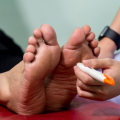Peripheral neuropathy can result from traumatic injuries, infections, metabolic problems, hereditary causes, and exposure to toxins. One of the most common causes is diabetes. People with peripheral neuropathy usually describe pain as throbbing, burning, or tingling. Another thought behind nocturnal neuropathy has to do with temperature.
At night, our body temperature fluctuates and drops a little. Most people also tend to sleep in a colder room. It is thought that damaged nerves could interpret the change in temperature as pain or tingling, which may increase the feeling of neuropathy. You may feel extreme pain in your feet, legs, hands, and arms, even when lightly touched.
You may also have trouble detecting pain or temperature in these parts of your body. Symptoms usually get worse at night. Most of the time, you will have symptoms on both sides of your body. However, you may have symptoms only on one side.
Peripheral neuropathy develops when nerves in the body's extremities, such as the hands, feet, and arms, are damaged. Symptoms depend on which nerves are affected. During this exam, the doctor will look at your feet for signs of problems and monitor blood flow and the sensation, or sensation, in your feet. Peripheral neuropathy is a type of nerve damage that usually affects the feet and legs, and sometimes the hands and arms.
The Inherited Neuropathies Consortium (INC), a group of academic medical centers, patient support organizations, and clinical research resources dedicated to conducting clinical research on Charcot-Marie-Tooth disease and improving care for people with the disease, seeks to better characterize the natural history of several different forms of neuropathy and identify genes that modify the clinical characteristics of these disorders. It may be due to a single nerve injury, such as carpal tunnel syndrome, or because a group of nerves has become defective, such as peripheral neuropathy of the feet. NINDS-funded research ranges from clinical studies of the genetics and natural history of hereditary neuropathies to discoveries of new causes and treatments for neuropathy, to basic scientific research on the biological mechanisms responsible for chronic neuropathic pain.



